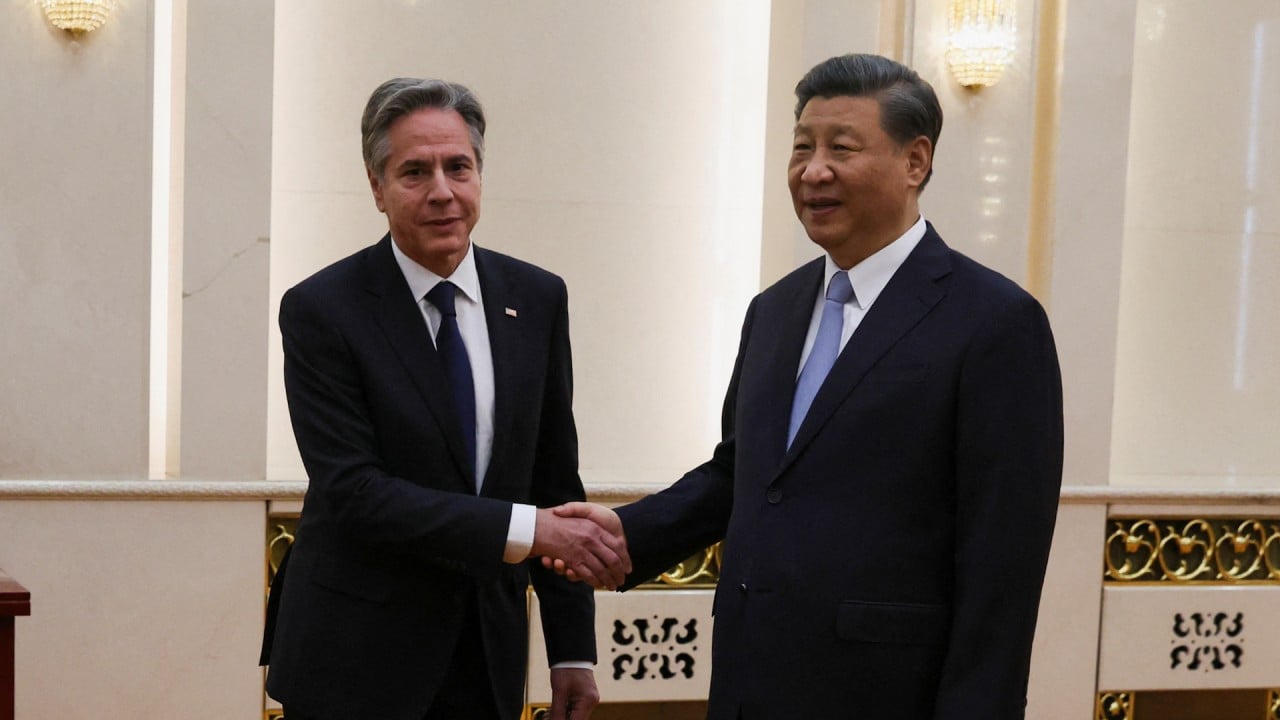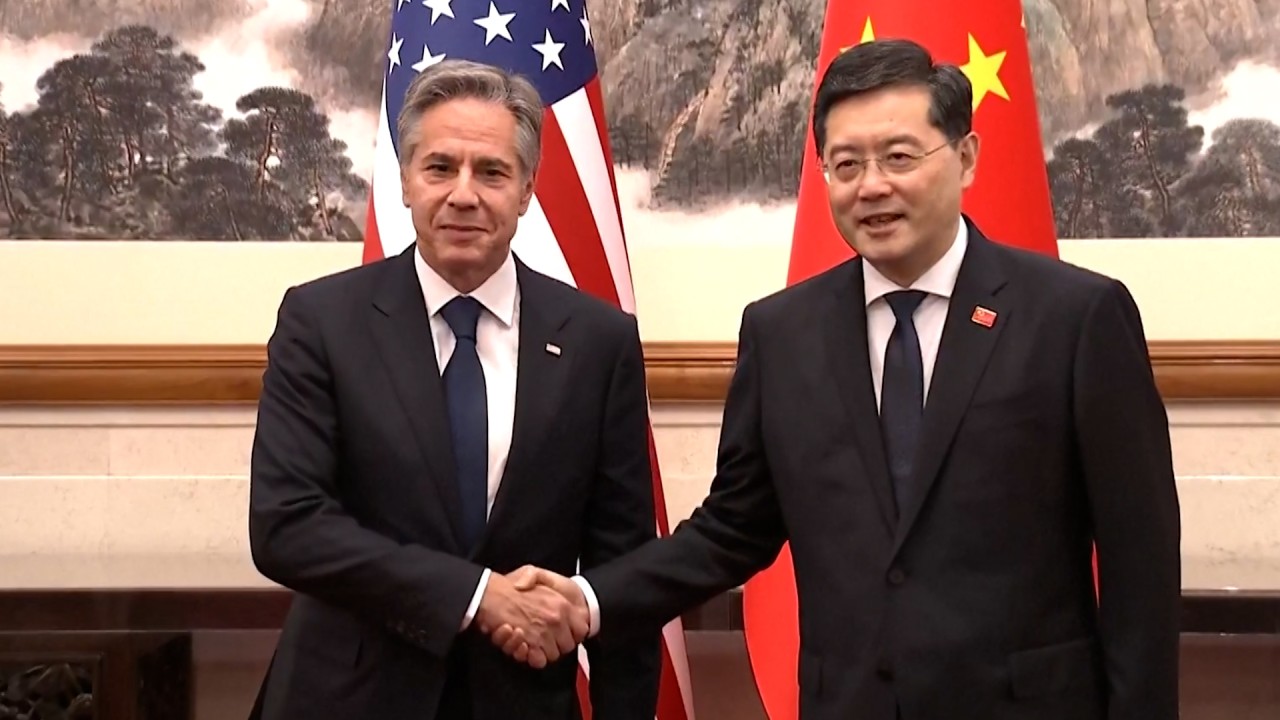
US-China relations: we must talk security, Wang Yi tells Antony Blinken
- Beijing’s top envoy says both countries have to be on the lookout for ‘grey rhinos’ and ‘black swans’
- Meeting on the Asean sidelines was candid and constructive, US State Department says
In a statement on Friday, the Chinese foreign ministry quoted Wang as saying the two countries should find ways to stop “grey rhinos” and handle “black swans” – high-impact or unexpected events – and create conditions to stabilise US-China relations.
“The US needs to take a rational and pragmatic approach, work with China in the same direction … expand the communication channel in diplomatic and security fields, make their communication more effective, and promote smooth people-to-people exchanges,” he said.
The ministry said Wang met Blinken on the American envoy’s request, and the talks were “candid, pragmatic, and constructive”. Both sides have agreed to maintain communication following the meeting.
Wang said China and the US reached “some common understandings” after Blinken met Xi, calling it an “important step towards calibrating the giant ship of Sino-US ties”.
“The critical next step is to take real actions to put the bilateral relationship back on the right track. The US needs to reflect on the cause of the serious difficulties in China-US relations,” he said.
Beijing views self-ruled Taiwan as a renegade province awaiting reunification with the mainland and has not ruled out the use of force to take control of it. Like most countries, the US does not recognise Taiwan as an independent state but is opposed to the use of force to change the status quo.
Wang said the US should stop “suppressing” China and lift “illegal and unwarranted sanctions” levied against China.
Both Beijing and Washington – as major countries with a huge sphere of influence – should respect the efforts of countries in the region and “avoid bringing disputes and complex factors” into regional cooperation, Wang said.
US State Department spokesman Matthew Miller said Blinken used the meeting to advance Washington’s interests and values, and to “directly raise concerns shared by the US and allies and partners regarding [Beijing’s] actions”.
During the discussion, Blinken stressed the need to maintain peace and stability across the Taiwan Strait, and made clear that the US and its allies and partners would advance their vision for a free, open and rules-based international order.
The meeting – which the US described as “candid and constructive” – was part of Washington’s efforts to maintain open channels of communication to “responsibly manage competition by reducing the risk of misperception and miscalculation”, Miller said.
“This is what the world expects of the United States and the PRC,” he said, referring to the People’s Republic of China.
China, Russia vow to work together to boost regional ties in Jakarta talks
Dylan Loh, an assistant professor in foreign policy at the Nanyang Technological University in Singapore, said the meeting indicated that the US was keen to put a “floor” on its relations with China but it was not surprising that both countries took the chance to air their concerns.
“Both sides want some progress but no side wants to compromise first,” he said.
“It’s akin to moving two steps forward and one-and-a-half steps back. Nevertheless, any forward movement is good.”
Loh said the talks would be useful for resuming dialogue and rebuilding trust between both countries, and he expected more interactions and an eventual meeting between Xi and US President Joe Biden.
“Without these meetings, it is difficult to see a floor or an improvement in the relationship. It is fundamental to re-starting or resetting the relationship,” he said.
Lu Xiang, an expert on US-China relations at the Chinese Academy of Social Sciences, said the meeting did not generate a breakthrough but it did send a strong signal about the need to avoid a crisis.
“A good attitude does not equal concrete results. China-US ties are still in limbo in practical areas. We need to see progress in fields such as trade to say there is progress in bilateral ties,” Lu said.



